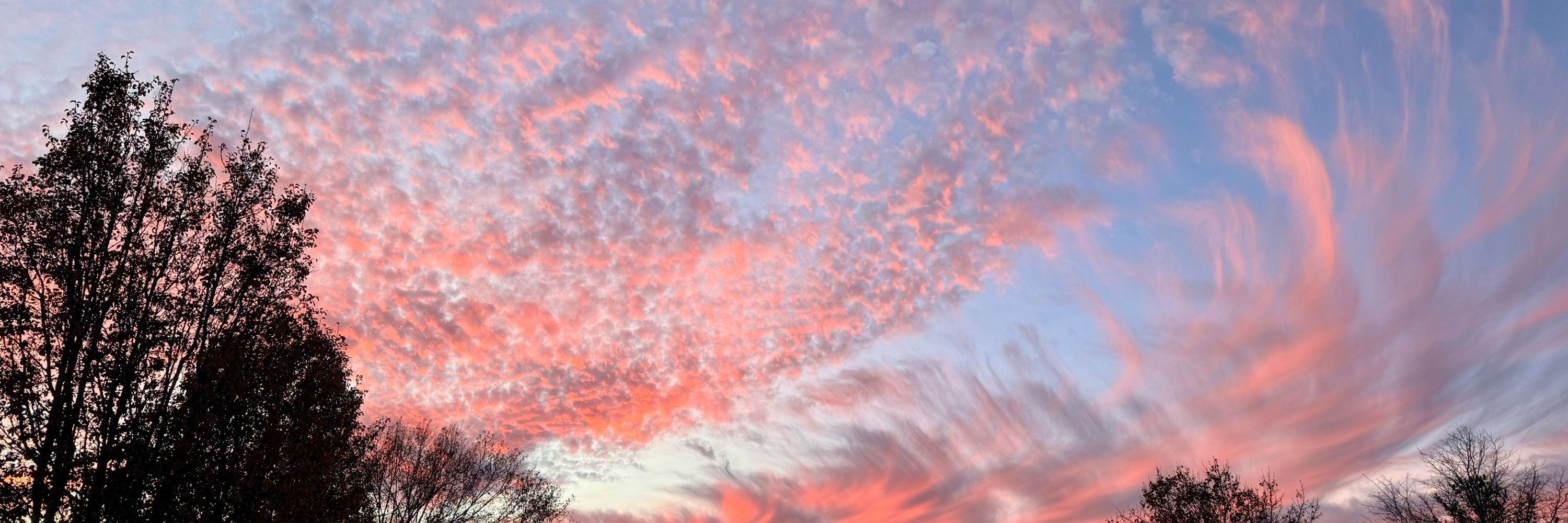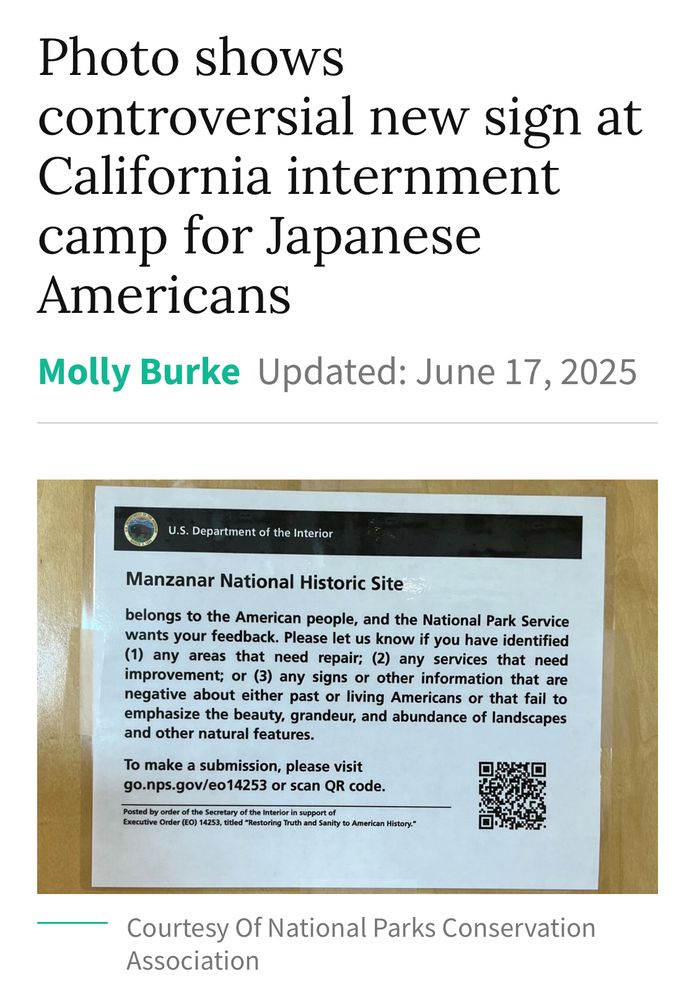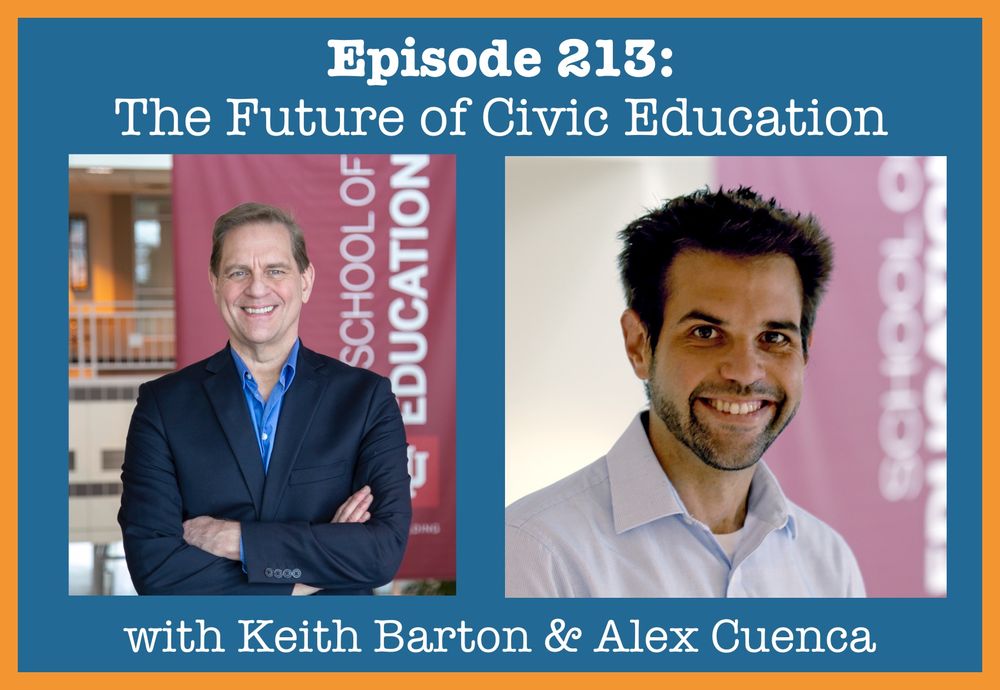
Professor at Indiana University. History education, social studies, civic education. Warning: feed may include photos of my fabulous granddaughters. Justiceandharmony.com

Reposted by Keith C. Barton, Susan Strasser

All national parks now have this sign. Sanitizing crimes and erasing memory is one more step towards a white supremacist version of history.

In this episode, Dan and Michael chat with Drs. Barton and Cuenca about the new book, “The Future of Civic Education: Rebuilding a Democracy in Ruins.”

Reposted by Keith C. Barton

In this episode, Dan and Michael chat with Drs. Barton and Cuenca about the new book, “The Future of Civic Education: Rebuilding a Democracy in Ruins.”












